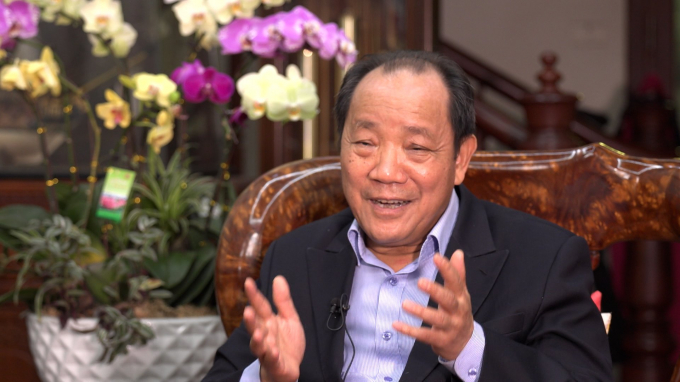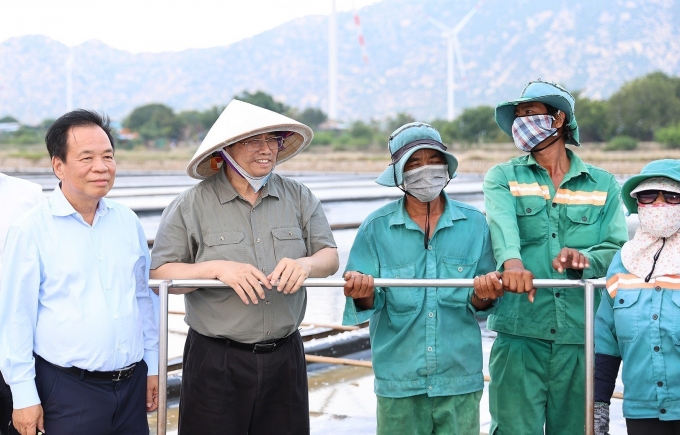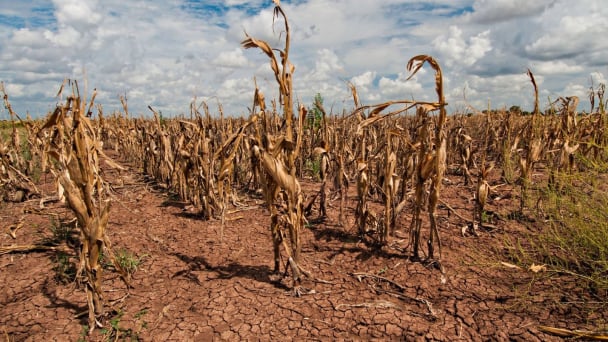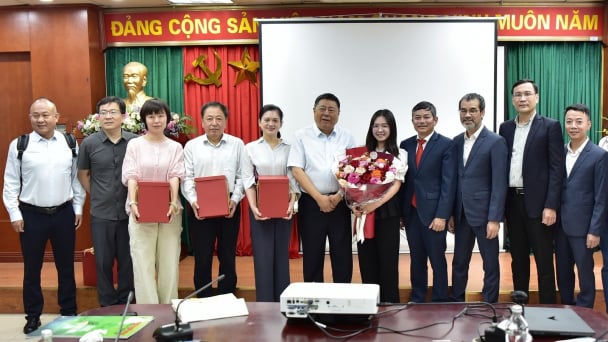May 29, 2025 | 06:13 GMT +7
May 29, 2025 | 06:13 GMT +7
Hotline: 0913.378.918
May 29, 2025 | 06:13 GMT +7
Hotline: 0913.378.918

Mr. Ho Xuan Hung - former Deputy Minister of Agriculture and Rural Development. Photo: Nhat Quang.
On April 21, the National Online Conference on implementing the National Target Program on New Rural Development and the National Target Program on Sustainable Poverty Reduction was hosted by Standing Deputy Prime Minister Pham Binh Minh.
Mr. Ho Xuan Hung - former Deputy Minister of Agriculture and Rural Development, has been with the National Target Program on building new rural areas from its very first days, said that more than ten years ago, the Ministry of Agriculture and Rural Development (‘MARD’) started the National Target Program on building new rural areas in a challenging context. According to the review, on average, each commune only met four criteria at that time.
In 2010, when the Prime Minister signed Decision 800 approving the National Target Program on New Rural Development for the 2010-2020 period, Vietnam only dared to set a target that 20% of communes would meet new rural standards by 2015, and 50% by 2020.
The Ministry of Agriculture and Rural Development had only piloted a few new village models implemented by the Ministry of Agriculture and Rural Development and the Central Economic Commission but had not yet figured out a new rural commune.
Therefore, when there was a Resolution of the 7th Central Committee, term X on agriculture, farmers, and rural areas, the Secretariat decided to establish a Steering Committee to build a new rural commune model.
The task of the Steering Committee is to find answers to a series of questions: How to build a new countryside, where to start, who does it, who benefits, and where is the money to do it? Also, it is necessary to develop a specific set of criteria to evaluate what a commune meets the new rural standard. As a result, Vietnam has a set of criteria for building a pristine countryside for the first time.

Prime Minister Pham Minh Chinh met with salt farmers in the salt field in Phuoc Minh commune, Thuan Nam district, Ninh Thuan province, on April 16, 2022. Photo: Duong Giang.
And in the process of building the point model, MARD has found the key to success. Firstly, people do, and the State supports it. Secondly, businesses, professional social organizations, and political organizations accompany the people and are headed by the Central Vietnam Fatherland Front.
The Government has reviewed, revised, and supplemented a series of regulations, even submitted to the National Assembly to amend some laws and rules to mobilize resources, especially resources from businesses.
Regarding the most important decisions to help mobilize resources of the whole society to build a new countryside, according to Mr. Hung, the leading role of the State must be affirmed. Still, the part of the people cannot be ignored.
For example, when building rural roads, the State supports basic materials such as cement, brick, and stone; People donate land and contribute to road construction to build roads for the people to enjoy. Socio-political organizations and socio-professional organizations must also join hands to support.
However, there are many difficulties in building the New Rural Program in material and immaterial factors.
For example, when we change the culture house, change a custom to build a new cultural lifestyle; reorganize schools or reorganize rural markets, etc., in every field, touch from the small private interests of individuals and households to the significant attractions of a village or a hamlet... All these problems are complicated.

The New Rural Program has strengthened people's confidence in the Party and the Sate. Photo: Thanh Nga.
In addition, many localities have made movements in a superficial, visible way, considering meeting the new rural standards but not meeting many criteria, such as infirmaries, there are no doctors, and schools do not have teachers. These shortcomings and limitations make people confused in the early stages.
45 million m2 of land people have donated to build roads and public welfare works (expanding schools, expanding clinics) is an impressive result.
The New Rural Program has strengthened people's trust in the Party. They strongly believe in the Party and the State.
It can see fundamental changes in the face of the countryside, people's living standards have been improved, and the poverty rate has decreased rapidly. Those results are excited by rural residents and most urban residents.
Therefore, the New Rural Program results are not only for rural residents but also for people at home and abroad.
Besides improving people's material life, Vietnam still retains the cultural identity of the countryside. Like any country, culture begins in the countryside because the countryside precedes the city.
Also, Vietnam has access to integrated culture, developing tourism associated with agriculture and rural areas, attracting industry to the countryside, and attracting businesses to invest in agriculture. These are significant steps forward, creating a position and force for future development.
Translated by Ha Phuc

(VAN) On May 27, La French Tech Vietnam (the French startup and innovation community in Vietnam) held the French Tech Summit Vietnam 2025.
/2025/05/27/4731-2-223159_980.jpg)
(VAN) No votive paper, no styrofoam, no plastic bags, no plastic bottles, and no single-use plastic trays are the key rules tourists should keep in mind when visiting Con Dao.

(VAN) In the fight against plastic pollution, Vietnam has been demonstrating a proactive, pioneering, and active role in addressing the greatest environmental challenge today.

(VAN) The WOAH guidelines provide a vital tool for risk chain analysis, covering the extraction, transportation, consumption, and handling of confiscated wildlife.

(VAN) World Environment Day 2025 is launched by the United Nations Environment Programme (UNEP) with the theme 'Beat Plastic Pollution'.

(VAN) As climate whiplash reshapes yields, experts say data-driven tools and targeted relief are critical to feed America.

(VAN) The alignment in goals and operational direction between the Vietnam Agriculture and Nature Newspaper and Shaanxi Daily opens up promising prospects for journalism and media cooperation.